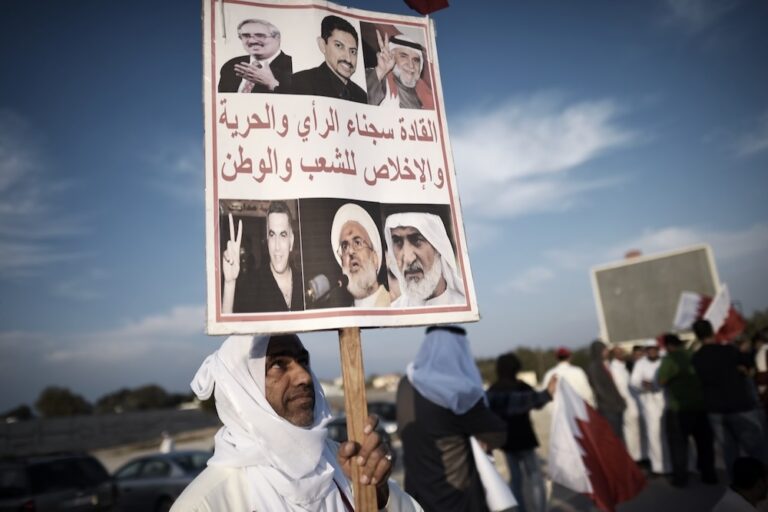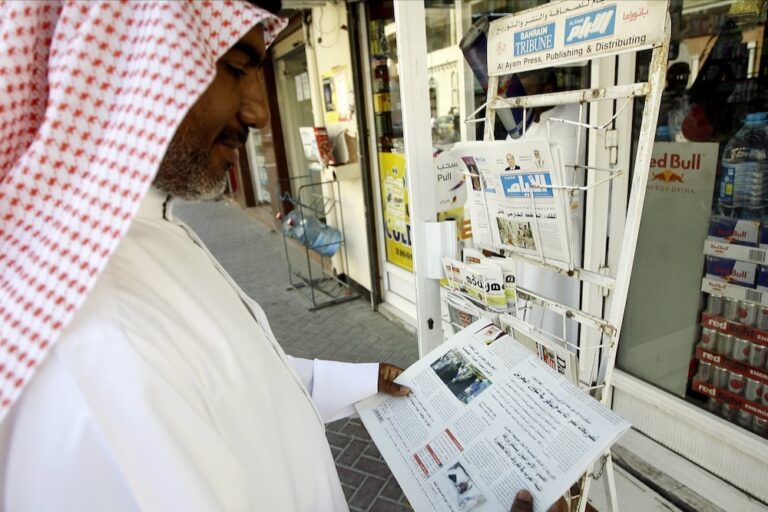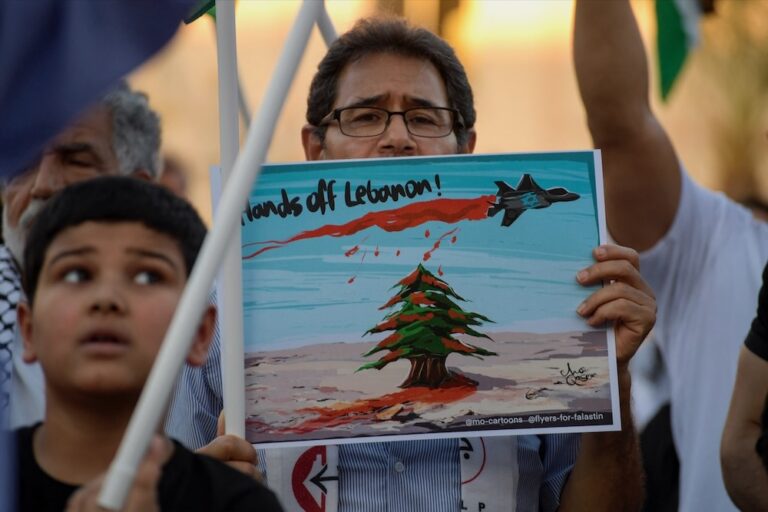The decision follows the recent broadcast of critical audio programmes which may have made the authorities uneasy.
(BCHR/IFEX) – 9 September 2010 – The Bahrain Center for Human Rights (BCHR) expresses its deep concern over the authorities’ continuing policy of restricting freedom of opinion and expression and the imposition of further restrictions on the manner and means by which information is disseminated. In a recent decision, the Information Affairs Authoritiy suspended the broadcast of audio reports by the daily “Al Wasat” newspaper on its website.
On 16 August, “Al Wasat” published an story saying that it had received a letter from the Information Affairs Authority asking the newspaper to suspend broadcasting of its audio reports, a modern press service provided by the newspaper to its online readers. The newspaper was previously licensed in 2009 to broadcast recorded audio reports on the Internet. The suspension is based on the Authority’s decision to stop the broadcasting of audio reports as of 16 August, pending the Council of Ministers approval of a resolution that regulates the work and conditions of this activity. This decision contradicts the 2002 Decree No. 47 on the regulation of the press, printing and publishing, which identifies audio reports as being within the definition of “publications”.
This is not the first time that the Information Affairs Authority (previously the Ministry of Information) has issued a ban on techniques used in modern journalism. In 2009, it prevented “Al Wasat” from using video technology to broadcast reports.
The decision follows the recent broadcast of critical audio programmes which may have made the authorities uneasy. One of the programmes was an interview with the president of the opposition National Democratic Action Society (WAAD), during which he criticised the Information Affairs Authority’s policies. Another broadcast was the first episode of the “Public Opinion Case” programme that discussed incidents of abuse of prisoners in the Jaw Central Prison and included recordings of family members of the prisoners expressing their concern and dismay over the degrading manner in which the prison authorities treated them. The authorities tried to hide the abusive practices.
“Al Wasat” began to provide audio reports on its website in 2009, when it began to transform the traditional media through the use of modern technologies to keep up with local events by conducting audio interviews with people and providing more space for the expression of opinions. The subjects of these reports varied between political, cultural, sports and social issues. They became very popular among the website visitors, as noted via the high numbers of comments and page views.
The service created an opportunity for community groups to express their opinions and views on cultural, political and social issues through audio interviews at a time when the authorities are controlling all visual and audio media channels and carry out an undeclared ban on critical subjects or hosting of any of the victims or marginalized groups in the community. Although Bahrain possesses technical features to enhance what is known as the new media using new technologies and internet connections, its repressive policies have led to a decline in the country’s ranking on international indicators for freedom of opinion and freedom of the press.
According to reports by Reporters Without Borders, Bahrain dropped from ranking number 96 in 2008 to number 120 in 2009, and Freedom House ranked Bahrain as “not free” in its 2009 report on the Freedom of the Press.
BCHR believes that the Information Affairs Authority’s prevention of this service is intended to restrict the media and the independent press, and to retain the authorities’ traditional dominance over all media channels in the country. BCHR further believes that the timing of this decision, in sync with a security crackdown targeting human rights defenders, is an attempt to undermine and limit any voices that oppose or are critical of this campaign.
The decision is a clear violation of freedom of the press, opinion and expression as provided for in international conventions and, in particular, in Article 19 of the International Convention on Civil and Political Rights, which stipulates that: “Everyone shall have the right to freedom of expression; this right shall include freedom to seek, receive and impart information and ideas of all kinds, regardless of frontiers, either orally, in writing or in print, in the form of art, or through any other media of his choice.”
In light of the foregoing, BCHR demands the following:
1 – Stop the continuous targeting of and restrictions on the media and independent local and international press.
2 – Lift the ban on the broadcasting services, visual and audio reports on the “Al Wasat” newspaper’s website and other news sites, and stop the practice of controlling the visual and audio media industry
3 – Respect the rights of the public to obtain news and information and respect Bahrain’s obligations as a member of the Human Rights Council.
4 – Reform laws restricting freedom of opinion and expression, primarily the Press and Publications Law of 2002, to comply with international human rights standards.


